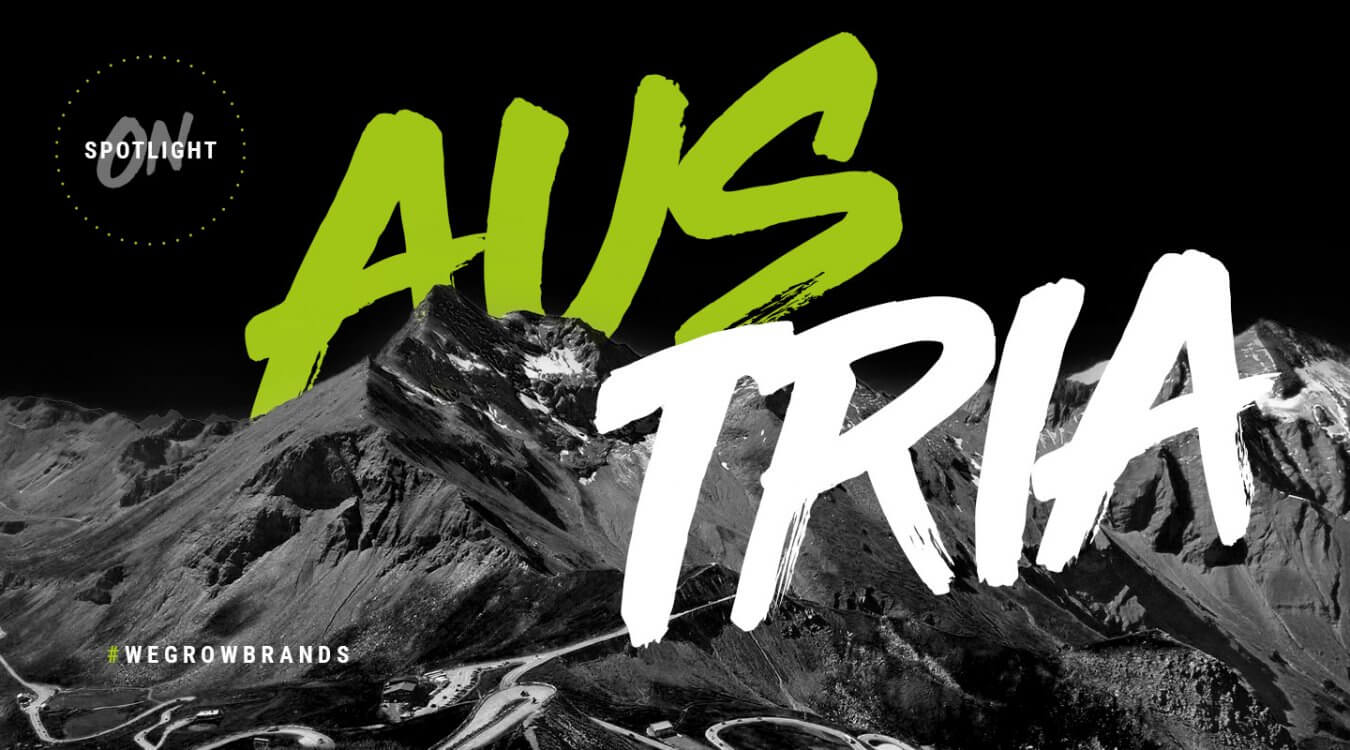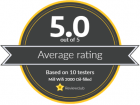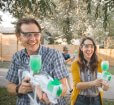Country Focus: Austria
Notes from a small country
Our home country is located in the heart of Europe. Hospitable, beautiful with world renowned cultural institutions and great nature. The alps cover about 62% of the total landmass of Austria and the country is home to about 9 million inhabitants, neighbored by a total of 8 other countries (Germany, Czech Republic, Slovakia, Hungary, Slovenia, Italy, Switzerland and Liechtenstein). Tourism is obviously a very important part of the economy and, according to Statistics Austria, employs around 250.000 people, reaching around 7,5% of GDP.
Fun fact time
- Austria used to be one of the most powerful global empires of the 19th century, covering 700,000 square kilometers with many famous citizens, from Ötzi (one of the most well preserved stone age men that some claim is Italian 😉) to Mozart to Schwarzenegger all the way to the first woman to ever receive a Nobel peace prize, Bertha von Suttner. And although Steven Spielberg isn’t Austrian, he owes his last name to the town of Spielberg in Styria because of his ancestors from there.
- Austria isn’t just home to Red Bull, but also Europe’s oldest restaurant still in existence: Founded in 803 AD, St. Peter Stiftskulinarium is located inside Salzburg’s St. Peter’s Abbey and serves Austrian cuisine to countless visitors including Mozart and even Christopher Colombus.
- Vienna’s St. Stephen’s Cathedral was partly built with wine. Wait… what? Right, recycling at its finest – and that as early as 1450! Bad vintage was not allowed to be poured away so it was used to slake the lime of the foundation for the north tower.
The Economy
Austria’s economy is regulated according to the principles of a social market economy. Austria has been a full member of the European Union since 1995. In a ranking by gross domestic product per capita, Austria ranked 11th in the world in 2013, and 21st in terms of gross national income (as of 2004). Compared to the average GDP per capita of the EU, Austria achieved an index of 127 in 2016 (EU25=100).
The service sector has a rounded share of 68% in the overall economic performance, the industrial sector of 30% and agriculture and forestry account for 2%. With per capita revenues of over 2,000 euros (2017), tourism plays a significant role in Austria.
According to data from the World Economic Forum’s Global Competitiveness Index, Austria ranks 21st (out of 141 countries) among the most competitive countries in the world in 2019.
The Ecosystem
The most important sector is food retailing, and here the concentration is even more pronounced. The four food specialists Rewe, Spar, Hofer and Lidl, which top the retail ranking, recently generated cumulative sales of 18.25 billion euros.
The food retail sector is followed at a considerable distance by the furniture (€ 2.9 billion), clothing (€ 2.8 billion), DIY (€ 2.3 billion), drugstore & perfumery (€ 2.1 billion) and electronics (€ 1.9 billion) sectors, with competition being strongest in the clothing sector: there are no fewer than 24 specialist clothing retailers among the top 100 companies.
By contrast, there are only eight furniture retailers and DIY stores, five drugstores and nine electronics stores. The strongest electronic stores are MediaSaturn, Hartlauer, McShark, Conrad and electronic4you.
It’s an (Amazon) online world
85% of Austrians buy online at least once a month; 71% have increased their onlinr purchasing activity since the pandemic. There is also a clear dominant player in domestic online retailing, and as in many countries, this player is called Amazon.
The Internet giant recently generated sales of around 620 million euros, putting it in eleventh place in the top 100 ranking. By way of comparison, the Unito mail order group, which includes the Universal, Quelle and Ottoversand brands, recently generated only a good third of Amazon’s sales.
The rising star among online retailers is Zalando – with sales of 174 million euros, the fashion specialist is already the 32nd largest retailer in the country. In third place is Mediamarkt.at with net e-commerce sales of 144 million euros.
Influencers
In 2019, 13 daily newspapers (excluding free papers) with 16 regional editions and three free daily newspapers were published in Austria. The total reach of daily newspapers averaged 4.56 million readers or 60.7% of the population aged 14 and older. By far the greatest reach was achieved by the Neue Kronen Zeitung, with 2.04 million readers per issue or a 27.2% share of the population, followed by the Kleine Zeitung (Graz and Klagenfurt) with 10.4%.
A majority of Austrians (54 percent) trust print media. The 55-plus generation in particular still uses print as its main news source to some extent. However, television is used even more frequently as the main news source. In winter 2020/2021, 66 percent of respondents said they tended to trust television. About 15 percent of survey respondents aged 45 to 54 in 2020 said they used radio programmes as their main news source. Trust in radio is just as high as in TV.
Some of the most important Austrian influencers overall include:
Johannes Bartl (fitness, 1.6m IG followers)
Stephanie Davis (beauty and fitness; 1.4m IG followers)
Lisa-Marie Schiffner (lifestyle; 1.3m IG followers)
Marcel Dähne (modeling and music; 1.3m IG followers)
Doina Barbaneagra (travel and modelling; 1.3m IG followers)
Manuel Bechter (photography; 1.2m IG followers)
Consumer electronics
Sales in the consumer electronics market will amount to around € 2.564 million in 2021, while the largest market segment is telephony with a market volume of around € 1.040 million in 2021 in terms of value.
Converted to the size of the population, this market will generate revenue of around € 283.5 per capita in 2021, and 51.6% of total sales in the consumer electronics market are expected to be generated online.
drei.at is the most visited consumer electronics website in Austria for September 2021, followed by mediamarkt.at as the runner up, samsung.com in 3rd, apple.com in 4th and conrad.at in 5th place.
Listing
In terms of expectations and management of listings, Austria is very similar to Germany. Even though MediaMarkt is run as a separate entity with separate listings, margin expectations and deal structures are comparable to Germany.
Most retailers also accept market research data from Germany as a proxy for the Austrian market.
Aqipa insights
Aqipa is “born and raised” in Austria and has had its home base in Tyrol for over 30 years. The company headquarters are in Kundl, a fantastic location in the heart of Europe within a day trip (700km) to almost any major city in Europe. From there, Aqipa runs a highly automated robotic warehouse as well as customers service, marketing and operations services.
Though a small market compared to other European strongholds, Austria typically has the broadest range of Aqipa brands. Next to A-brands like GoPro, Marshall, Pioneer, Onkyo, TEAC, Braun, Pure, XGIMI, Blueair, Mysoda, Aqvia and Unagi, which we distribute across many countries, Ecovacs (robotic vacuum cleaners) and Westinghouse (home appliances) are exlusive to Austria.
With state of the art facilities, Aqipa is able to deliver up to 28,000 boxes/day and can serve large palette based orders as well as one SKU e-commerce orders very fast and efficient. The CE channel is of course very important for us with customers like MediaMarkt, Cosmos, ElectroPartner or Hartlauer, and we are also strongly connected with the Spar Group (Interspar, Hervis), Rewe as well as sports and outdoor channels like Intersport and Gigasport.
Our team in Austria is led by Werner Königsrainer who is also responsible for the Italian market. Contact him with any questions you may have – he’ll be happy to help you!




